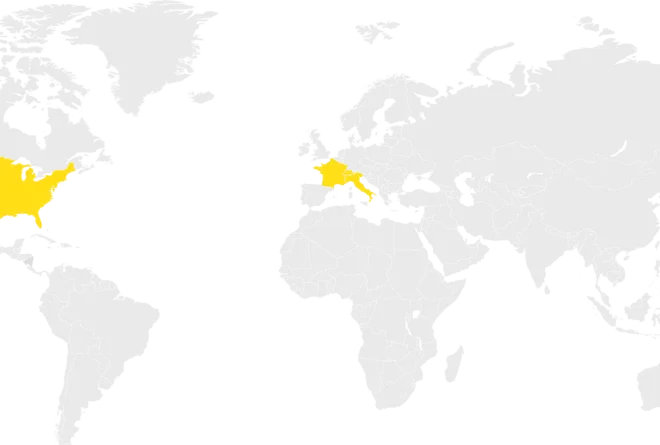News & Trends
Innovation and risks: the DNA of progress

Through courage, determination and an unshakeable belief in their ideas, entrepreneurs don’t just create new markets — they shape the future, and find solutions to the challenges of our time.
Everything starts with an idea — perhaps in a garage, in a small office or on a walk through town. This was also the case for Nick Swinmurn, who was looking for a specific type of shoe in San Francisco in 1999 but couldn’t find it. He decided to solve the problem himself and to sell shoes online; he founded Zappos and built up the company into one of the world’s biggest online shoe retailers. Through top-notch customer service and generous rights of return, Zappos is revolutionizing the online shoe trade. Visionaries don’t just create new markets — they shake up entire sectors.
Each newly founded company and every innovative product drive economic development. Start-ups and SMEs — many of them led by their founders — drive economic development and are the backbone of many economies: they create jobs, boost purchasing power and attract investment. Tesla is a good example: with its foray into e-mobility, the company has redefined the automotive industry and set sustainability standards. Entrepreneurs like Elon Musk demonstrate how innovation can disrupt traditional industries and ensure the economy is fit for the future.
Resilience at a time of crisis
Entrepreneurship fosters economic diversification and stability. Entrepreneurs capture new areas of business, ensuring that economies are broader-based and more resilient in the face of economic fluctuations and crises. Many entrepreneurs responded swiftly during the Covid-19 pandemic by building digital business models or adapting their production lines to incorporate face masks and other protective clothing.
In this way they showed flexibility and social responsibility at a time of crisis. Through courage and determination, visionary entrepreneurs are shaping a future in which economic success and social progress are intertwined — a trend that favours Globalance.
40 %
of GDP in emerging-market countries is generated by SMEs that were set up by entrepreneurs.
22 %
annual increase in the value of founder-led companies. Externally led firms saw an increase of only 4.7%.
54 %
of Generation Z plan to set up their own business, with 84% believing they will do so in the next five years.
Sources: World Bank ⁄ Global Entrepreneurship Monitor ⁄ Square Report
How important are entrepreneurs to the economy?
People who set up a firm are not only responsible for the success of their business — they are also the driving force behind the economic development of entire countries. In the EU, SMEs account for 99.8 per cent of companies and create more than 64 per cent of jobs.
The essence of entrepreneurship
What makes successful entrepreneurs
Innovation
IKEA founder Ingvar Kamprad revolutionized the furniture market in the 1940s by supplying affordable, flat-packed furniture for the mass market. His idea led to the emergence of a global furniture giant.
Ingenuity
Creating innovative energy sources for underdeveloped regions is the vision pursued by Jessica O. Matthews. With Uncharted Power, she is developing a kinetic football that generates electricity through movement — and changing the lives of many people.
Appetite for risk
It was in the 1980s that Logitech co-founder Daniel Borel ventured into the uncertain market for computer peripherals. His conviction that computer mice were indispensable paid off, and today Logitech is a market leader in the sector.
Tenacity
Götz Werner, founder of the dm-drogerie markt chain, faced down initial opposition back in 1973 with his focus on flat hierarchies and sustainable management. His tenacity led to dm becoming one of Europe’s largest drugstore chains.
Adaptability
As well as music, Spotify now also provides podcasts and exclusive publications. Founder Daniel Ek recognized the transition to the consumption of digital media at an early stage and is responding to the needs of users in a flexible way.
Skin in the game
Sara Blakely, the founder of Spanx, invested all her savings in shapewear. Despite plenty of setbacks, she built up a billion-dollar business and shows how personal commitment leads to success.
Be part of the solution and stay informed with the Futuremover.
Subscribe now and shape the future!
Magazin abonnieren EN
"*" indicates required fields

Discover the entire issue
Read more articles from our current issue: ‘How entrepreneurs are shaping the world?’.


